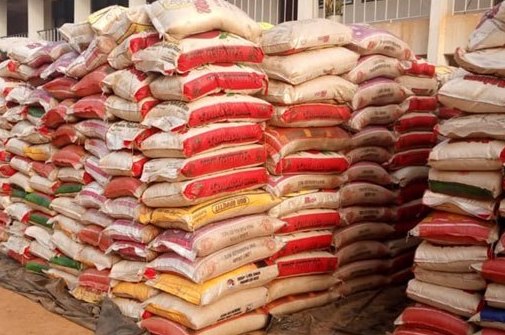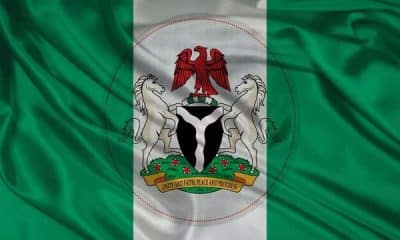Nigeria News
Rice Remains Restricted Despite Lifting Of Forex Ban – Customs

Despite the surge in the cost of rice and the recent decision to lift the ban on foreign exchange for its imports, the Nigeria Customs Service has affirmed that rice remains a restricted commodity.
Rice, a staple in the Nigerian diet, has experienced a notable increase in price despite local production efforts. Currently, a 50kg bag of rice is selling for between N55,000 and N60,000, depending on the location of purchase.
This marks a significant rise from approximately N30,000 for the same bag a year ago, despite domestic rice production and the recent permission for forex use in rice imports.
On October 12, Naija News reported that the Central Bank of Nigeria had removed the ban on importers accessing foreign exchange for 43 items, including rice.
Despite the anticipation among many Nigerians that the cost of rice, especially imported varieties, would decrease following the Central Bank of Nigeria’s announcement, the opposite has occurred, with the price of this staple continuing to climb.
While domestic rice producers attribute the rising costs to the high expenses associated with production, it has been revealed that imports are still restricted due to limitations imposed by the Nigeria Customs Service.
The Nigeria Customs Service maintained that rice, being a restricted item, would face confiscation if imported through the country’s land borders. It emphasized that the lifting of the foreign exchange ban on 43 items by the Central Bank of Nigeria did not remove the status of rice as a restricted commodity.
“What is the relationship between the removal of forex on restricted items, vis-a-vis fiscal policies of the government? They are different things. Rice is a restricted item. So, if it is a restricted item, it remains restricted,” the NCS spokesperson, Abdullahi Maiwada, told Saturday PUNCH.
He continued, “There is a difference between restriction and prohibition. And there is a difference between absolute prohibition and prohibition by trade. Somebody who is in tune with how these import and export processes are done must know what these terminologies are.
“How many tonnes of rice do we produce in Nigeria? Those are the things to find out, not to ask me why the price is going high. Rice is a restricted item, and that is why it is being intercepted.
“If you import rice through the land border, it will be confiscated because it is a restricted item. The way vehicles cannot come in through the land border is also how rice cannot come in through the land border.”
Maiwada emphasized that the government’s restrictive policy on the commodity remained unchanged. He stated that any alteration in policy would be communicated to the public by the customs service.
He said, “If there is a change in policy, we will tell you. If today the government says vehicles can come in through the land borders, we have to inform you by telling you that the government has lifted the ban restricting the importation of vehicles through the land borders, and you can then import vehicles.
“Also, some people are talking about frozen poultry products, and these are products under the import prohibition list. Go and check our website, see the import and export prohibition list, and you will see that live birds and poultry products are under the prohibition list.
“He clarified that the Nigeria Customs Service does not have a role in determining the market prices of goods, adding that “Customs is only responsible for the implementation of fiscal policies.“











